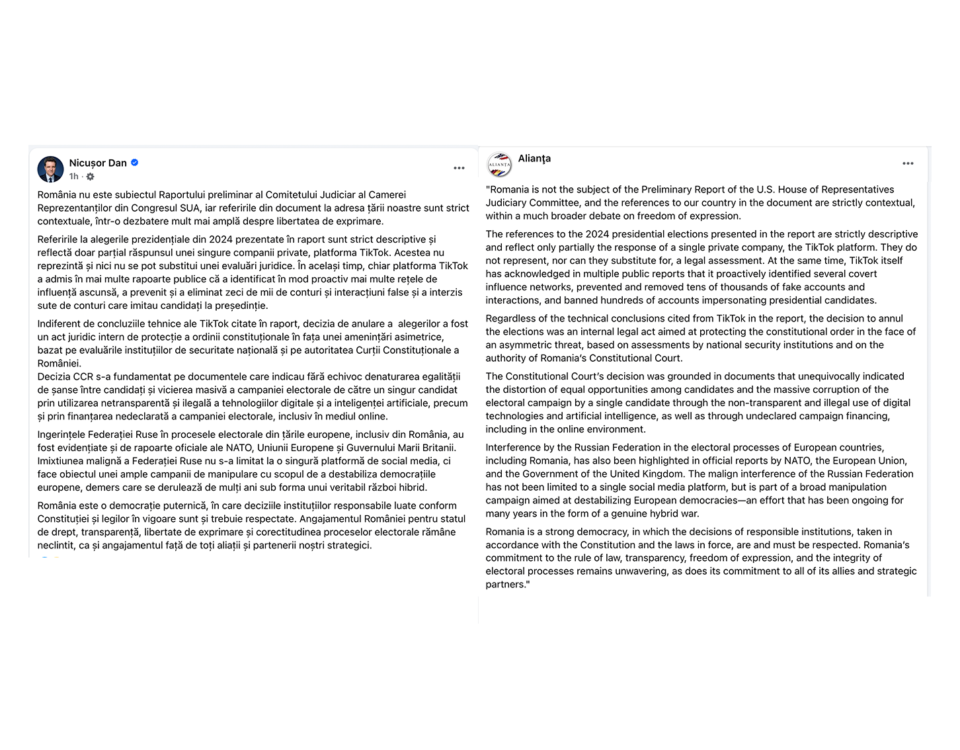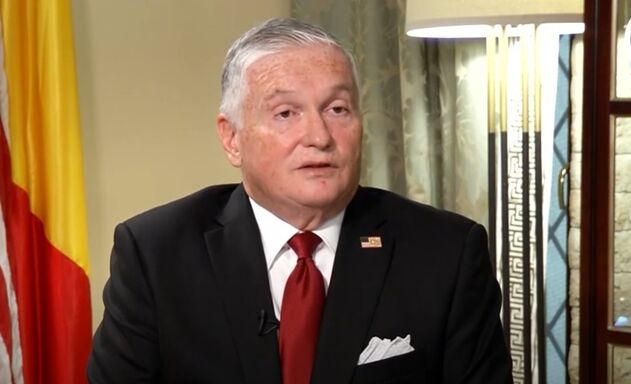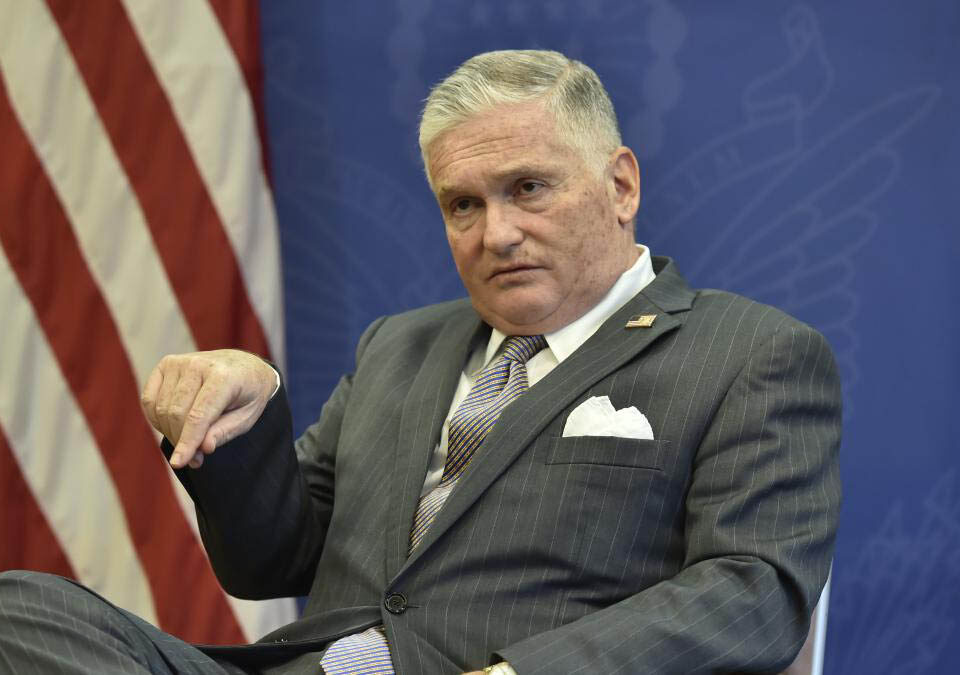As Romania continues to face critical economic and institutional challenges, Alianta Chair, Ambassador Adrian Zuckerman, offers a candid and urgent perspective on the need for systemic reform. In the piece below—originally authored by Ambassador Zuckerman—he outlines the structural inefficiencies holding Romania back, while calling for bold, merit-based governance, privatization, and transparency. Drawing on his experience as former U.S. Ambassador to Romania, this article is a must-read for anyone committed to Romania’s future and the strengthening of U.S.–Romania relations.
This piece was originally published in Romanian by Antena 3 CNN, one of Romania’s leading news outlets. We are proud to share the original English version in full below.
Read on to explore Ambassador Zuckerman’s vision for a more prosperous, accountable, and forward-looking Romania.
Romania is at a crossroads and in economic extremis. It finds itself in this situation because thirty five years after the revolution which threw out the communist regime the revolution has still not been finished. Some of the vestiges of the communist system, economic, political and judicial, unfortunately have remained in place. The adverse consequences of this can be clearly seen when Romania is compared with Poland, the Czech Republic and other countries who were able to make a clean break with their communist past.
Although Romania has made substantial progress over the last thirty five years, it has still failed to fully implement a truly free capitalist market place, independent judiciary and a transparent meritocracy in government. There are many instances of corrupt transactions protected by the highest levels of government, for many years, with little or no consequence to those involved. Some recent examples are the Nordis scandal, the military procurement scandal, the nursing home scandals, the school scandals and the numerous hospital scandals. There have been no consequence for those government officials that protected these schemes. There has been great opposition to eliminating sinecures and providing competent governance.
Similarly, there is also great opposition for the government to divest of its non core assets. As a result, most of the bountiful natural resources of Romania lay fallow and are mismanaged by inexperienced and incompetent political appointees. Romania is one of the richest countries in Europe benefitting from oil, gas, agriculture, forestry and industry. Development and investment is stymied not only by incompetent management, but also over burdensome laws, regulations and institutionalized corruption. Many officials talk about Romania becoming an energy exporter , rather than an importer, with lower energy prices for Romanians, but the same putrid systems are kept in place that have prevented this for the last 35 years.
Although Romania has Europe’s biggest gas deposits offshore in the Black Sea there is only one company that currently extracts gas there. It took that company thirteen years to commence production a mere year and a half ago. Chevron and Exxon were driven out. There have been no auctions to sell any gas fields in the Black Sea for over ten years. Companies that had fields in the Black Sea were not allowed to drill. Other energy generation and transmission companies, from nuclear, gas and and electric, companies move forward at a lapidary pace due to mismanagement, lack of transparency and questionable practices.
Similarly, Romania could be one of Europe’s biggest agricultural producer. Before the second world war it was known as Europe’s breadbasket. However, its plentiful natural resources forests, farmland, and rivers have been mismanaged. In managing its agricultural resources Romania is stuck in the 19th century. The agricultural sector employs 26% of the labor force, but contributes only 4.3% of GDP. These resources are underdeveloped and mismanaged. Many other countries — with far fewer resources — have leapfrogged ahead. Romania has been held back not by fate, but by bad governance, incompetence and corruption.
The Romanian private sector has been doing well showing growth year after year. It employs some 4.5 million people. The Romanian public sector is another story. In November 2024, public sector employees reached 1.3 million. The cost to the government for these employees represents almost 37% of government revenues as compared to 16% of revenues in Germany and 23% of revenues in the EU on average. Another approximately 3.25 million people work for the 1,400 or so state owned or controlled companies - these companies as a group lose huge amounts of money annually, fail to pay taxes and are an enormous financial burden. The remaining people in Romania do not work, are either too young, too old, or have other reasons for not working. So, a country of some 17 million people is being supported by only 25% of its population. This is an untenable situation and the result is Romania’s current dire economic situation - the money bucket is empty.
It must be noted that of the 1,400 or so government owned entities only less than about 10 show an annual profit and that profit is much less than it should be. The state has spent billions funding these companies. These companies are repositories for inexperienced political allies and friends and families of the politically connected. Companies like TAROM and CFR lost tens if not hundreds of millions of euros last year. Most are delinquent in paying taxes, lack transparent governance and engage in specious business practices.
Romania also has the largest VAT gap in the EU - 35–36% uncollected. This translates to €9 billion annually in lost revenues. TVA taxes paid by many if not most retailers are paid to a variety of small intermediaries rather than directly to the state. These small intermediaries often times collect the money for a period of time, fail to pay the TVA to the state and then file bankruptcy with no consequence to the individuals behind these schemes. If these intermediaries were removed and TVA were to be paid directly to the state by the reputable retailers, there would be an increase in collected TVA by billions.
There is also no reason why ANAF has not been digitalized so that it can properly tax all in equitable fashion, especially those individuals and companies that have made tax evasion an art form.
There should also be no further monies paid to subsidize failing state owned or controlled companies. These companies should be closed or put into bankruptcy. If they have any value an investor will buy the company, or its assets, and run it profitably. The state will see an immediate decrease in its expenses and an increase in tax revenues from an operating well managed company.
Similarly, those few state owned or controlled companies that have any value should be sold in whole or in part. Hydroelectrica is a good example. The state owns 80% and the other 20% is publicly traded. Based on the 20% that is publicly traded Hydroelectrica has a market value of $10 billion. If the state started a program of selling some of its interest it could raise as much as $8 billion or a lesser sum if it retained an interest. Most importantly, once the state reduced its interest below 50% the private sector investors could bring in competent management, transparency and good corporate governance. The company would then focus on maximizing profits, capital improvements and long term productivity rather than cronyism and rewarding political insiders.
Transelectrica is another example of a company that has a huge potential and value were it not mismanaged by incompetent political appointees. Even though it has a national monopoly and revenues of close to 8 billion euros it has profits of only a few hundred million. More importantly it poses a danger to Romania’s national security - over 80% of transmission lines, transformers and other equipment date from the 1960s and 70s. The average electrical transmission capacity is only 50%. This system could fail at any time with little or no provocation.
Transelectrica has failed to modernize, failed to develop inter-connectors with adjacent countries so as to benefit from EU energy integration, has not used or applied all available EU funds allocated for modernization, has higher than normal operating costs, lacks transparency on procurements and contracts and costs to consumers, has failed to institute an appropriate program of preventive maintanance, and perhaps most importantly has bad corporate governance.
The executives of Transelectrica are not appointed based on merit, but based on political considerations. None of the executive team of Transelectrica has a background in the energy area, let alone electrical transmission. The people of Romania deserve better than this and should say no to this continuing abuse of their trust and pocketbooks.
Professional management needs to be engaged. A political party or government can not do this because they do not understand business or the parameters of what a good executive for a business should be. The private sector understands because their own money is at risk and will find the best individuals to operate and safeguard their business and investments.
Reform is desperately needed. The abuses need to stop now. They have been in effect for 35 years - enough. Romania’s great potential which everyone touts needs to be developed.
The cycle of mismanagement, incompetence and sinecures has to be broken. The government needs to cut waste, modernize, and attract foreign investment.
The enemies of reform — those who profit from corruption and inefficiency, those who embrace state control and the vestiges of the communist era — are already resisting. The people of Romania must choose: Stay trapped in stagnation, mediocrity and economic duress or support a democratic, free market path forward with a better and more prosperous life for all Romanians and their children. If Romania fails to make the much needed reforms now and elevate itself to a meritocracy and truly capitalist economy it may be condemned to another 35 years of stagnation, corruption and mediocrity.




